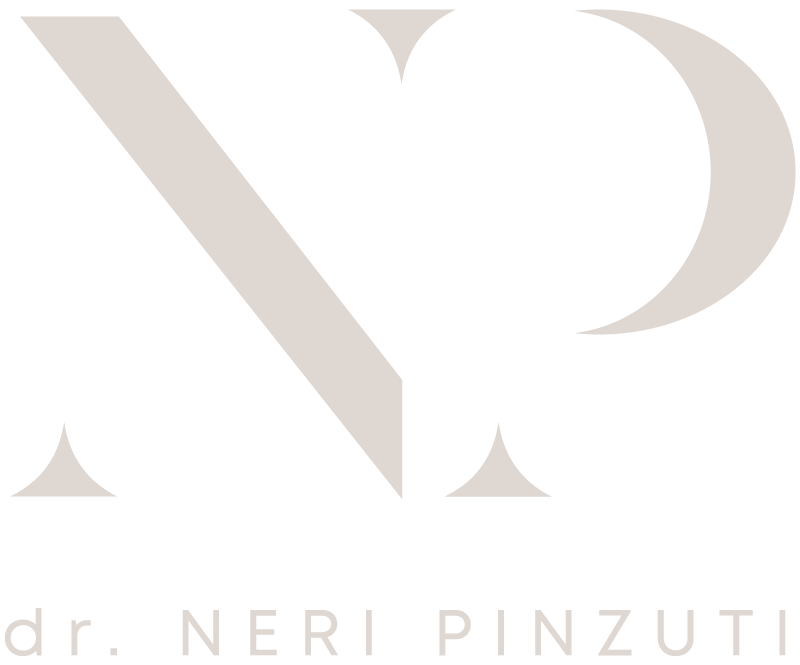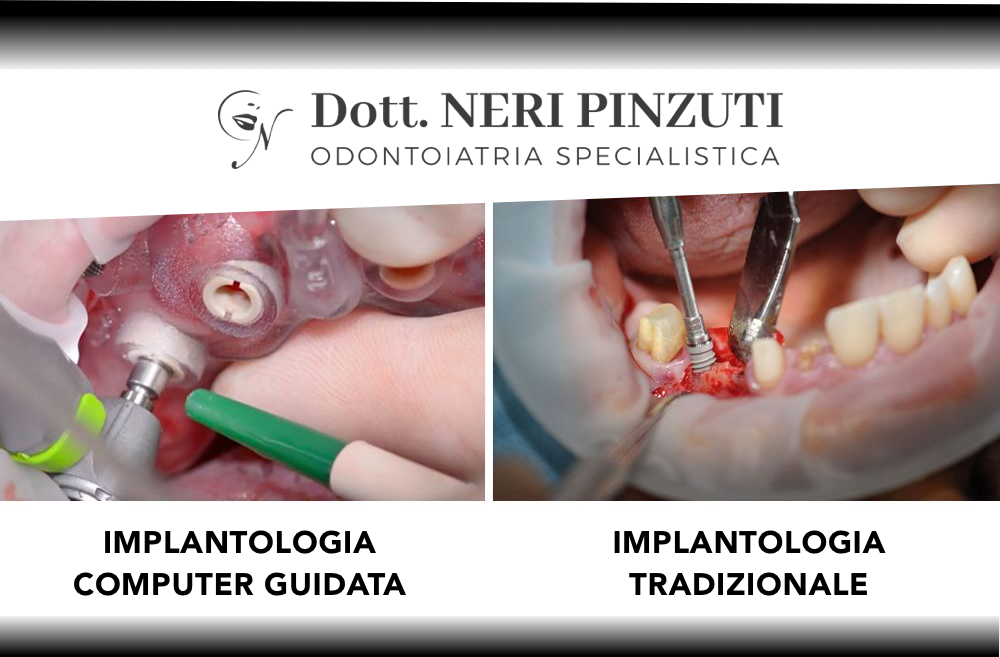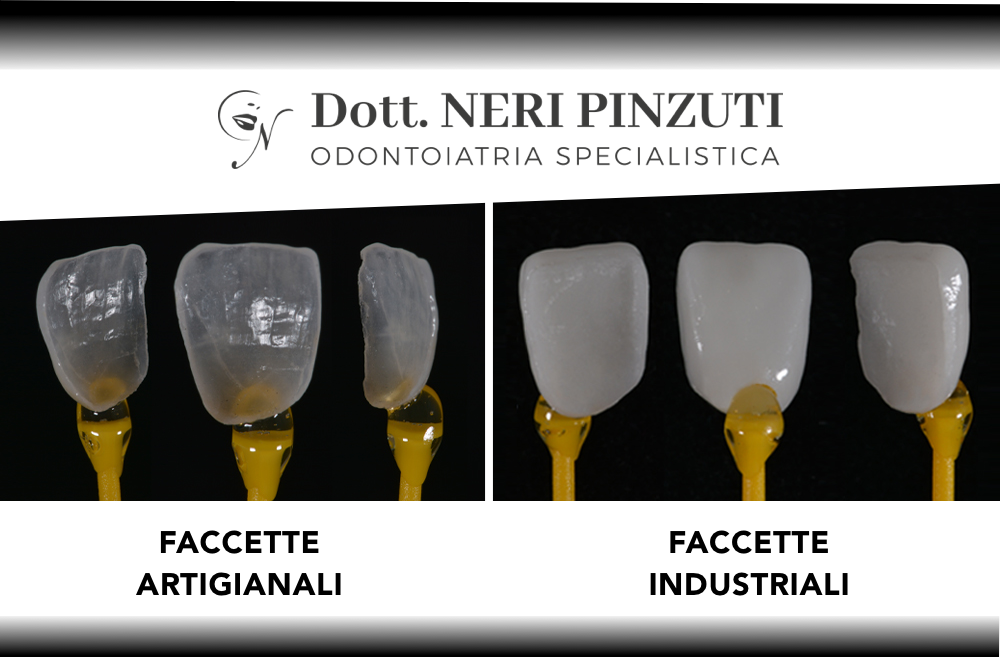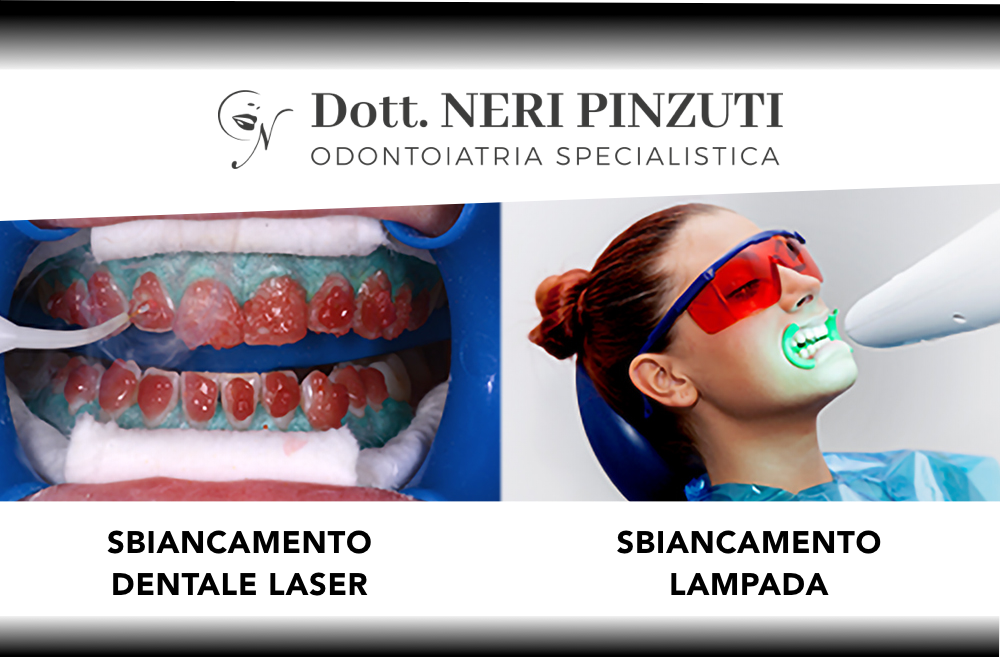Professional Neri Pinzuti answers the most common questions about low-cost dental centers and so-called dental tourism. Enjoy reading!
Today we hear more and more about low-cost dental centers: how much has the financial crisis influenced the expansion of this phenomenon ?
The financial and economic crisis has certainly been the trigger as it has led to a decline in employment and consumption, with more sober purchasing behavior and a greater propensity to save intended as an extreme preventive defense mechanism against an uncertain future.
Low cost and health care is a much debated topic...it almost seems like an oxymoron
Since health care costs money, in a country where there is extensive, if not total health care coverage, some care remains off the list and paid for by patients.
Among them, we unfortunately find dental care, 90% of which is provided in our country by freelancers. The figure of the "public dentist" is very small, waiting lists are long, and inevitably teeth are treated in private facilities which, of course, are expensive.
Are there also those who because of the crisis are unable to care for themselves in any way?
ISTAT showed that only 40% of the population has had dental access during the past year, 50% have not been to the dentist for more than 1 year, and 12% have never been to the dentist. This leads to several reflections: first, it is evident that it is still not very clear to the population how important it is to make a correct diagnosis, to intercept problems in their nascent state not only to have benefits from a health point of view but also economically.
In this scenario, low-cost dental clinics and travel companies that organize real pilgrimages to Romania, Croatia, Poland and neighboring countries in order to save money on medical care are finding ground.
But how do these low-cost centers come into being?
The first low-cost centers to set up in Italy are all of Spanish origin but as of today 6-7 chains also operate tricolor. Mainly these are large corporations that invest large sums of money in advertising with the aim of attracting the largest number of patients by leveraging the seemingly lower prices; control of the dynamics of the practice is only in the hands of the investors, no freedom of action to the doctors even in determining the estimates.
Although the services offered are absolutely the same as those of any private practice, the goals are not the same: in these centers everything must be subject to and rigid economic rules, fillings must be done in a predetermined number of minutes, savings are made on materials and surgery times for prostheses, and the patient is never followed up by the same professional making it, among other things, difficult to identify, in case of litigation, the real culprits of any error.
I understand that for you the role played by the patient matters a lot, beyond the economic aspect
The patient is the protagonist of my treatment plan; I have clients who call me at any time of the day and even at night. Private commitments permitting I am always on call.
Behind such tempting prices charged by low-cost centers are shenanigans?
No, not necessarily. When you read scaling at 45 euros (as opposed to the average of 80-100 euros in normal dental offices), it is really charged that price. No catch.
The only difference is that I in 1 hour in my practice do a single scaling session as this is the time required to provide a really effective treatment while in these centers in 1 hour 2-3 sessions are done.
From a clinical point of view, a superficial ablation has no positive influence in terms of preventing serious oral cavity problems.
Not to mention the slogans starting from; I as a professional am unable to understand what they are proposing to me, let alone an ordinary inexperienced and untrained patient on the subject.
Is it risky for a patient to undergo dental treatment at these low-cost centers?
I start from the premise that I don't want to talk about those black-news realities where secretaries act as hygienists, prostheses are made in China or India, sterilization protocols are zero, primary care physicians implant prostheses ... these are realities (unfortunately existing) that should only be investigated by law enforcement.
Speaking of the regularly accredited and certified low-cost centers, I can report my own experience as I am constantly operating on and treating patients who at first were treated by doctors from these centers: insufficient diagnostic insights, poorly placed implants, oro-sinus perforations not treated within 72 hours are just a few examples of issues I have had to remedy.
Based on the assumption that anyone can make a mistake, all the patients who have come to me have complained of a total inadequacy in the management of the delicate doctor-patient relationship at critical moments; the sanitarians have been responsible for iatrogenic harm in most cases: instead of listening and assisting the patient by trying to put the appropriate remedies in place by entrusting him perhaps to a more experienced colleague, they have abandoned him, sometimes even refusing to receive him in the office, thus pushing him to address his grievances elsewhere.
And as I said earlier filing lawsuits against these centers is often time wasted.
Additional examples of malfunctions that I have encountered are the lack or inadequacy of the written estimate, subsequent unbudgeted economic demands, injunctions for failure to pay the final balance, and failure to return fees paid for ineffective treatments.
Are the prices really as advantageous as the advertising slogans suggest?
It depends on what a person wants to achieve by undergoing dental treatment: I know all the dental material companies and the prices that are charged by the manufacturers of the 'raw material' to us dentists . If one of my implants costs twice as much as another, it is because it is of higher quality. There is nothing more to add. I choose to give my patients only the best, in terms of implant quality and professional expertise because I do not want them to return to me one day unhappy with the result or with a rejected implant.
What about Groupon?
Groupon is a site on which I wouldn't even buy massage sessions; after seeing dental veneers for 100 euros, I had no choice but to wish the unfortunate patients the best of luck.
Another hotly debated topic is so-called dental tourism. What drives and how do you judge those who decide to seek treatment abroad?
There are two types of patients who come across health (including dental) tourism: those who go abroad in search of the top specialists in the field, and who are obviously not attracted by the price issue but rather by the skills of these professionals, and those who instead go abroad to spend less and get treated faster.
Unfortunately, the second kind of dental tourism scares me a lot and does not convince me in any of its forms.
It seems that these centers located mainly in neighboring Croatia, Poland , Bulgaria etc. manage to offer dental services discounted by as much as 90% thanks to lower material costs and a much more favorable taxation regime than in Italy
It is true that when it comes to foreign low-cost centers, the different taxation greatly affects the final price; but it should be remembered that abroad the regulations governing safety for the patient and employees are also very different: expenses for materials, certifications, equipment, and professional updating are all subject to much milder regulations than in Italy. Health and hygiene regulations, too, according to what Codacons pointed out in recent research, are much lighter than in Italy, which is among the most guaranteed of European states. It is clear that the patient will certainly be less protected .
So is a patient who decides to seek treatment abroad at these low-cost centers less protected than the prospect of getting treatment in Italy?
Of course, he is also less protected when litigation arises; since the legislation is very different and it is difficult to identify the real culprit of an error in clinics where the staff is constantly changing, it becomes difficult to file lawsuits. The medical records will all be written in the language of the country where the surgeries were performed thus lengthening the time of trials and leading to additional costs of lawsuits due to the need for translators.
In addition, Italian dentists who are supposed to solve the problems created by foreign colleagues do not do so lest they become legally liable for the damage caused. Even the Italian "guarantee" promised by some of these tour operators organizing the trips is worthless.
But how do those who go to these low-cost foreign centers get in touch with the facility?
There are travel agencies that recruit patients in Italy, arrange for them to go on full-fledged sightseeing tours (all-inclusive transportation, food, and lodging) that end with a stay in affiliated dental clinics before returning home.
One always relies on the tour operator who will probably be good at choosing the best trip and stay, but I hardly think he or she has the expertise to point out the most competent dentist to treat the individual's dysfunctional
What surgeries are most in demand abroad?
Those who go abroad to undergo dental treatment certainly do not do so to have their wisdom teeth removed or have two cavities treated; the procedures are all implant surgeries, that is, quite complex and lengthy procedures whose cost is certainly very high.
We also know for sure that these centers make money only when they manage to treat patients in a short time (I assure very short) and keep costs down. The time that punctuates the success of these facilities, any complication is a cause of lost revenue.
I gather that the staff in these clinics are much more specialized than in Italy to be able to guarantee successful surgeries in such a short time...
Adherence to clinical timeframes is probably the most controversial aspect when it comes to dental tourism; since these are often highly specialized treatments, high cost-effectiveness and brevity of treatment only get along under conditions where it comes at the expense of quality and increased health risks. Oral surgery, especially that involving bone, needs specific biological time frames to bring about healing that can be considered effective. Just as a dental laboratory needs time to be able to make proper dentures.
This means that if I have to implant a prosthesis but the patient is suffering from infections, caries, old restorations I first have to treat all the prosthetic pillars of the rehabilitation and then move on to the prosthesis. The whole thing is not feasible in one week. The human body says so.
Is it easy for a patient to understand the type of surgery a doctor is going to perform and the various benefits of one therapy over another?
Absolutely not; the patient in most cases is not able to evaluate all the technical parameters of a treatment plan; if, for example, the prosthesis holds for several years meeting the full satisfaction of the patient, it is by no means certain that that work is of excellence, that there are no asymptomatic infectious problems under that rehabilitation, and that that work was the best that could be done.
Perhaps teeth were removed or shrunk that did not require it, or as explained earlier, the periodontitis that afflicts so many adult patients, and is at the root of the failure of so many rehabilitations, both on teeth and implants, was not considered at all!
For this reason, I spend a lot of time explaining the treatment plan before I intervene so that my patient is clear from the very first moment about all the stages that will have to be faced.
But are there really surgeries that can be done in one day?
Absolutely yes if the patient is the perfect candidate, that is, without any periodontal disease or other dysfunction whatsoever.
It is possible, for example, to implant multiple teeth with immediate loading; but if the teeth to be replaced are still to be extracted, there will probably be bone infection resulting in an inability to screw a screw in stably so that it can be loaded immediately. At first, the implant may be stable ... but it will present the (steep) bill as time goes on.
In my practice, if the patient has periodontal disease, the course of preparation for surgery may take up to a month; the prosthesis will be implanted only when the tissues are perfectly healed and only after testing chewing, speech, esthetic performance etc.
Then I will put a temporary ( not used and considered unnecessary in most foreign clinics) after a week I will remove the stitches and be ready to implant the permanent prosthesis. Again, should the patient be the perfect candidate all these steps can be concentrated even in one session. That said, there are not many surgeries that can be
can be done in a single day, and there are no complex rehabilitations that can be done in a week.
What about postoperative follow-ups? Are they necessary? How often?
After surgery, checkups should be monthly for at least 6 months. They are essential. Those who are treated abroad owe it to themselves to constantly monitor postoperative progress considering also the travel expenses to be incurred that are no longer included in the estimate.
Even Striscia la notizia has covered these extraterritorial realities several times; a Croatian dental technician was once interviewed who stated that the resin temporary was totally unnecessary, that it prolonged therapy and could even be the cause of further problems with the teeth.
As mentioned earlier in most foreign clinics the provisional is little used; there is a tendency to implant the slightly strengthened prosthesis immediately in the hope that it will hold over time.
I personally believe that in a treatment plan that includes a prosthetic phase, the provisional is of paramount importance both for the stabilization of the abutments and for the protection of exposed dentin that could make the tooth very sensitive.; it also allows a previsualization of the final esthetic result.
But are all dental ceramics the same?
No. There are different types of ceramics, and the firing method and fabrication technique are also important because they affect the characteristics of the artifact.
The durability of a prosthesis depends mainly on the materials used. In general, the world implant market is divided into premium-price, medium-price and low-cost. To the first belong the implants supported by adequate scientific evidence and clinical trials, to the third belong the implants that, not being able to have these requirements, aim much of their commercial success on low price, sometimes exploiting expired patents of larger companies and copying them more or less slavishly, creating real clones but often out of all control. Obviously based on the final cost of the quote the patient can deduce what kind of implant will be proposed to him.
Foreign clinics, at the end of the treatment plan, what guarantees should they leave with the patient?
The guarantees are universal, and these are true certifications of compliance of the materials used.
I always issue my patients with an implant passport, which is a document inside of which are labels indicating the nature of the procedures performed (implants, abutments, screws), the material used, the date of insertion, the position in the mouth, up to very detailed details, such as the article code and the lot number of the implant. By viewing this data, any dentist anywhere in the world will be able to get an accurate clinical picture of the patient's mouth and adjust accordingly for surgery or maintenance procedures.Failure to deliver these guarantees should be viewed with extreme distrust by the patient.
What advice do you feel you can give to all those who, attracted by these new realities, want to undergo treatments abroad in search of cheaper rates?
Medicine in the broadest sense is an expensive process because, if implemented at high levels, it requires considerable specialization of all the people involved, the right treatment times, but also expensive equipment with high obsolescence that therefore must be replaced quite frequently. That is why high quality can never fall below certain levels, even in price.
Therefore, I would recommend a careful evaluation of all discriminants before deciding to go abroad and enter into realities that are difficult then to handle. Moreover (here I like to repeat myself) prevention is the only weapon each of us can have to limit expenses and to maintain the health status of the oral cavity over time.



